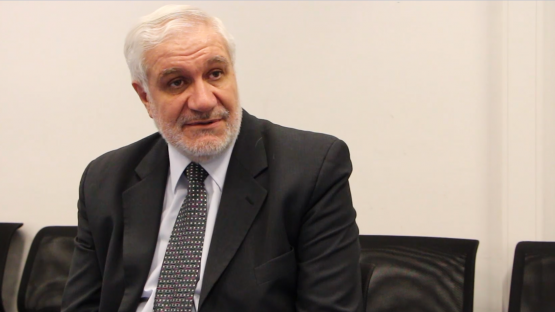The application of ionizing radiation remains one of the most noteworthy medical innovations of the last century. When used appropriately, radiation can be used to map internal organs, trace biochemical reactions, conduct non-destructive industrial testing, sterilize food and even suppress insect populations. However, in recognizing the utility of ionizing radiation, we must also recognize the hazards associated with it. When medical instruments and radiographs are poorly calibrated, or when patients and professionals are exposed to radiation for too long, the risk of harm grows.
Aware of and determined to address the growing need for radiation protection, 20 Member States in the Latin American and Caribbean region launched a technical cooperation (TC) project[1] in 2014 with the aim of strengthening the national infrastructure related to occupational and medical exposure. Before the regional project was launched, knowledge and skill gaps existed at both the national level and among major end-user institutions. In many countries, there was a need to compile dosimetry registries, to elaborate national training programmes, and to promote the necessary safety culture for the management of radioactive installations and their attendant sources.
This TC project aims to address these growing needs using a regional approach which focuses on capacity building through training courses and workshops, regional coordination and experience sharing, fellowships, scientific visits and the procurement of essential standard equipment.
By providing a platform for specialists in the Latin American and the Caribbean region to share knowledge and experience in the field of radiation safety, the project can contribute to implementation of cost-effective solutions and technical harmonization.
Building Capacities through Post-Graduation Education Courses
Ronald Pacheco, IAEA NSRW Technical Officer for the project explains: "Capacity building is a fundamental pillar to ensure the safe use of nuclear technology. This effort should be coherent with Agency standards, and also sustainable in the long-term. A national education and training strategy in radiation safety will help the country identify its requirements, know their needs, and establish a programme to secure strong national capacities."
The Post-Graduate Education Courses (PGECs), one of the tools of the IAEA to create national capacities in radiation safety, are a central element of this project. In 2002, the IAEA published the most recent edition of the Standard Syllabus for PGECs in Radiation Protection and the Safety of Radiation Sources, available in five of the six official UN languages. The syllabus provides the basic professional training for young professionals interested in radiation safety, and takes into account the requirements and recommendations of the Agency's new basic safety standards, GSR (General Safety Requirements) Part 3.
For 20 years, Spanish-language PGECs have been held in Argentina, and coordinated by the Argentina National Regulatory Authority (ARN). More than 1,000 students have successfully enrolled and graduated from the course, half of whom have come from neighbouring Member States in the Latin American and Caribbean region. For radiation safety professionals, this course has served as a launching platform throughout the region for progressive responsibilities in the matter. As a testament to the course's impact and effectiveness, for example, approximately 95% of the professional staff of the ARN and 75% of radiation safety professionals in Argentina have graduated from the PGEC.
By financing the participation costs of PGEC participants, the TC project aims to strengthen the knowledge base in the region and to encourage south-south collaboration.
In a recently conducted interview, Mr Nicolas Ruben, Chief of Education and Training at the Argentina National Regulatory Authority, elaborates the history and purpose of the Post-Graduate Training Course, and encourages professionals in radiation safety to enroll in the course, and capitalize on this valuable learning opportunity.
1] RLA/9/075


